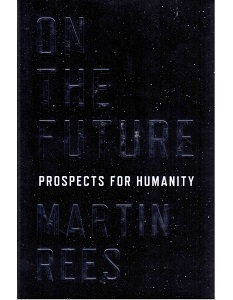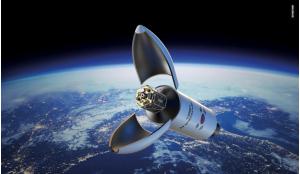The author of this compact book is well known to scientists and the British public through his role as Astronomer Royal and sometime science populariser. Space industry practitioners know him for his uncompromising views on manned spaceflight: a typical newspaper headline (from The Guardian in 2010) read “Martin Rees believes sending people into space is pointless and a waste of money”.
Although its index has plenty of references to space missions, people and issues, this is not a space book per se; according to the blurb, it’s about “the critical issues that will define the future of humanity on Earth and beyond”. As such, it covers the gamut of threats from climate change to nuclear weapons and discusses biotech, cybertech and even God (in which Rees does not believe).
Perhaps reflecting the literary world in which Rees grew up, the book is old-fashioned in its format: five sections with subsections, notes and an index, and no pictures (except an author portrait on the fly-leaf) to distract the reader.
Despite a childhood favourite being ‘Dan Dare – Pilot of the Future’ and an admission that he never looks at the Moon “without being reminded of Neil Armstrong and Buzz Aldrin”, Rees is keen to restate his views on manned spaceflight. “The practical case for manned spaceflight gets ever weaker with each advance in robots and miniaturisation”, he opines, but adds that its future “lies with privately funded adventurers”. It transpires that he is not really against manned spaceflight as such, simply against it when it stops space agencies spending all their money on unmanned missions.
And when it comes to solving Earth’s problems by providing access to ‘Planet B’, he is clear in stating his disagreement with the likes of Elon Musk and Stephen Hawking: “We’ve got to solve these problems here”, he says. “Coping with climate change [is] a doddle compared with terraforming Mars”. And on that he might be right!











